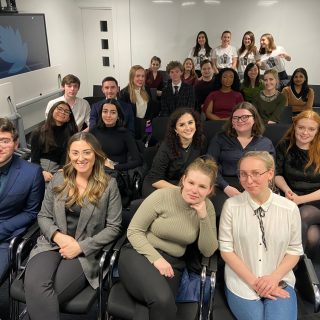Justice Week 2020 ran from 24th to 28th February and saw the Bar Council, the Law Society and the Chartered Institute of Legal Executives (CILEx) team up with the aim of promoting the importance of justice and the rule of law to young people. For a run-down on what you missed take a look at the listings. The Law Society released an interesting series of three podcasts for Justice Week, looking at cases which impacted on freedom, rights and democracy: Protecting freedom – Lee v Ashers Baking Company Ltd (the ‘gay cake’ case), Fighting for rights: UNISON v Lord Chancellor (tribunal fees case) and Defending Democracy – Miller 2 (the prorogation case).
I was asked to run a design sprint with the Bar Council in honour of Justice Week, and after a call out to UK law schools, we met with 8 enthusiastic teams for a full day of training and experimentation on design thinking processes on 3rd February. Teams came from the City Law School ( City, University of London) (2 teams), Kings College London, University of Birmingham, the University of Kent (2 teams), the University of Exeter and the University of York.
Raising awareness of access to justice issues was vital to this sprint and many of the challenges set by the organisations who kindly got involved were very much focused on ways of better reaching those who needed help and support with legal matters (more on the specifics of the challenges below).
The teams had less than four weeks to carry out detailed user research, ideation, prototying and testing of their solutions before delivering their presentations to a pretty daunting line-up of judges: Joanne Kane, Vice-Chair of the Young Barristers’ Committee and Barrister at Carmelite Chambers, Catherine Bamford, Director – Legal Engineering Lead at Deloitte Legal/CEO & founder of Bamlegal, Rae Digby-Morgan, Principal Consultant at Wilson Fletcher and a final year City student with experience of legal design activities, Cristina de Souza.
So how did they do?
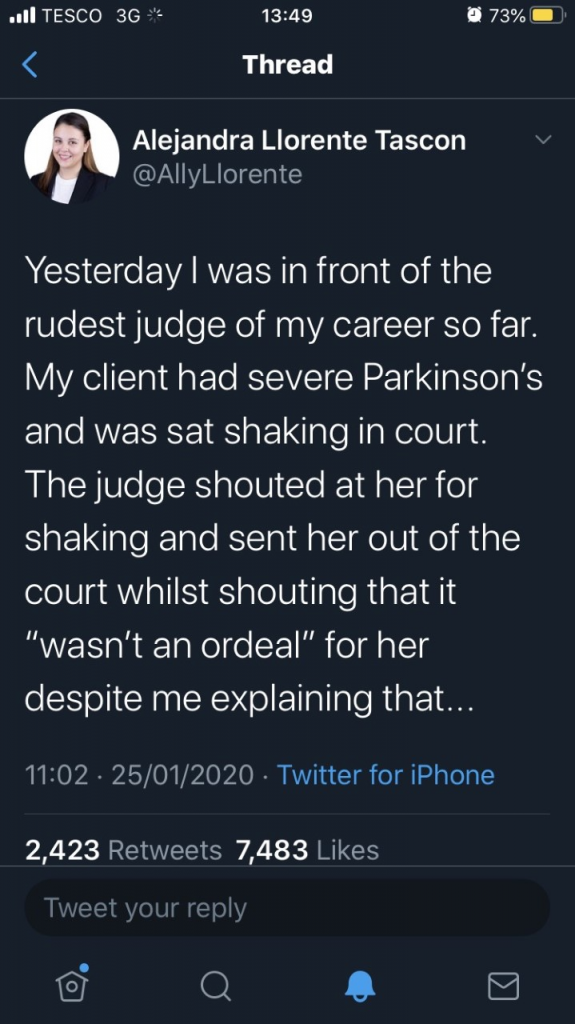
Two teams took on the challenge from Disability Rights UK. This was prompted initially by a tweet in January of this year. The organisation were keen for the teams to work on a product which would raise awareness within the judiciary around institutional prejudices against disabled people.
Very different approaches were developed, with the City team re-purposing the existing hidden disabilities sunflower lanyard in combination with a practice guide or app to help judges with an understanding of the condition and what reasonable adjustments might be appropriate. The Kent team developed some useful prototyping of an app to assist judges and aid the communication between the affected party and the judge.
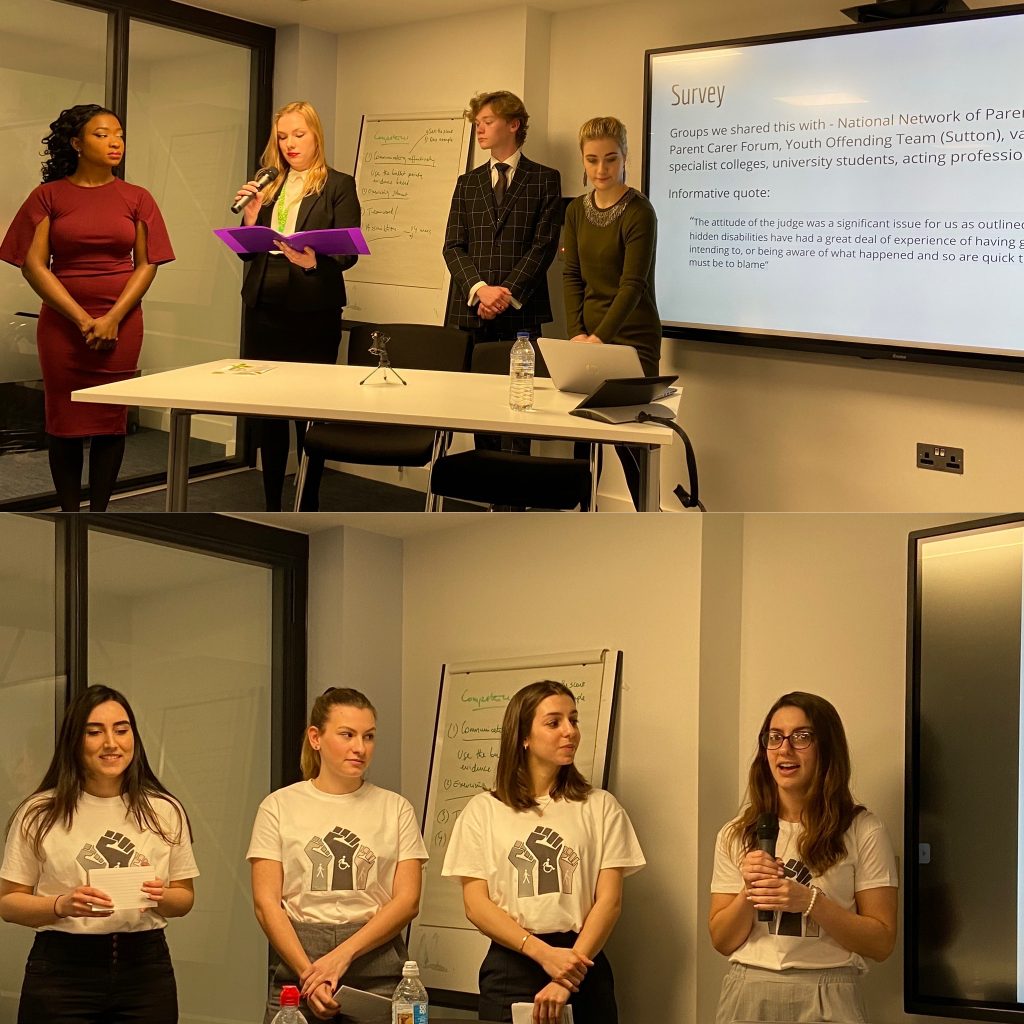
The School Exclusion Project’s challenge asked teams to create materials to support parents whose children have been permanently excluded from school. As background, the project operates through the City Law School’s Pro Bono Programme at the City Law School. Barristers from Matrix Chambers and 11KBW provide training and act as mentors to the student representatives. The team from Exeter showed excellent research abilities and had analysed a great deal of data to help with their archetypes and think about the user journey. Empathy such a strong part of their presentation and some really transformative ideas. York tackled the same challenge and had some interesting ideas on shifting the focus in terms of how much older children might want to be part of the process (i.e. materials shouldn’t always be aimed at the parent). Excellent focus on support and reassurance.
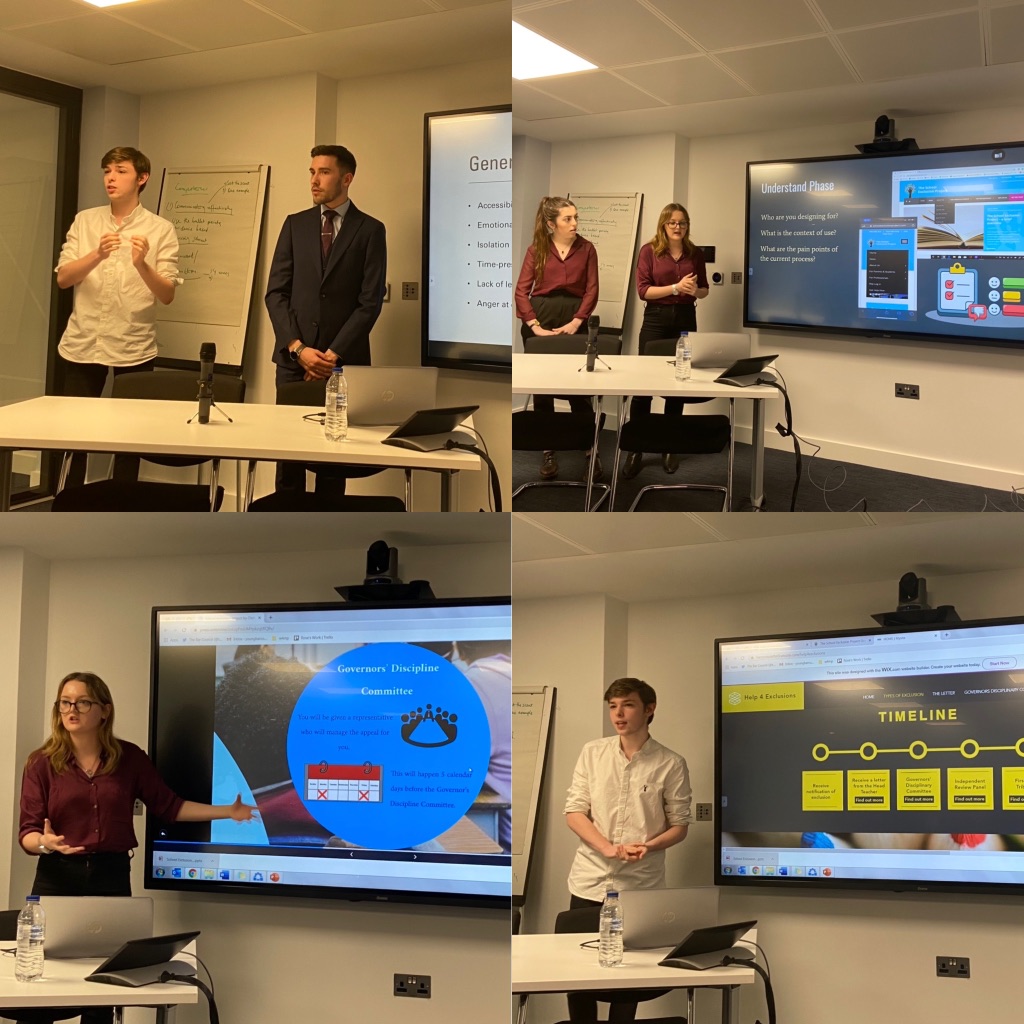
Teams from the University of Birmingham and Kings College London tackled a challenge from the Equality Advisory and Support Service (EASS). The EASS provided a scenario and asked the teams to use this to help in guiding an individual to build an equality case. Kings did a terrific job in development of their archetypes and mapping the emotional state of the users via journey maps. Really impressed to see them talk about what didn’t work in their development and how they pivoted from this. Remember – the fails are so important! Birmingham shifted their attentions to the EASS website as a whole and were able to show in their presentation a comprehensive level of desk research, and illustrated the pain points well. They came up with some excellent extensions to the existing resource and developed an impressive prototype. Presentation-wise this was very ‘human’ and engaging.
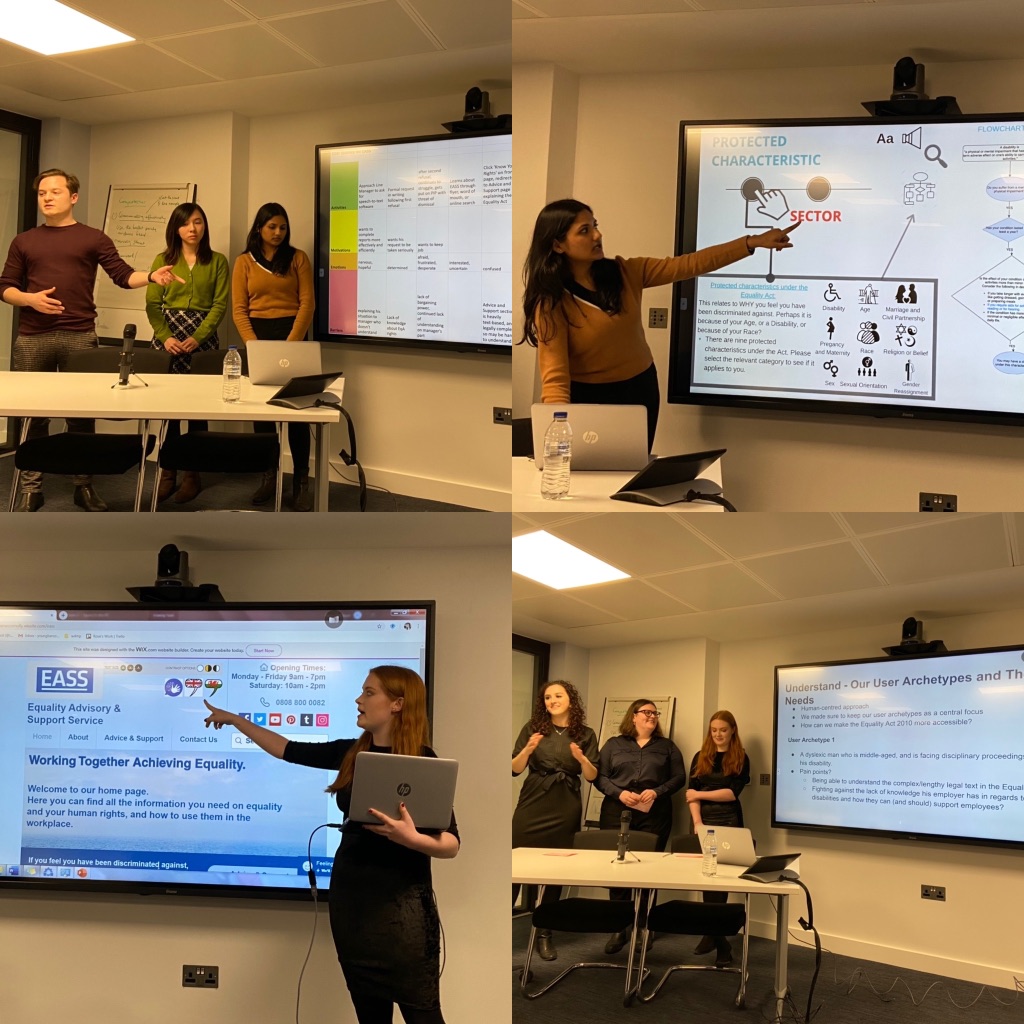
The second Kent team took on the nightmare that is judicial review via a challenge set by the Public Law Project. The PLP wanted to the team to create an accessible explainer for people who are going through the judicial review process, some of whom may be doing so without much or any legal support. This was quite a tough ask and the team did well to show their understanding of the context of use, as well as using the touch points to inform their presentation format. Helpful for us all to see the forms used and the team’s ideas around streamlining and simplification.
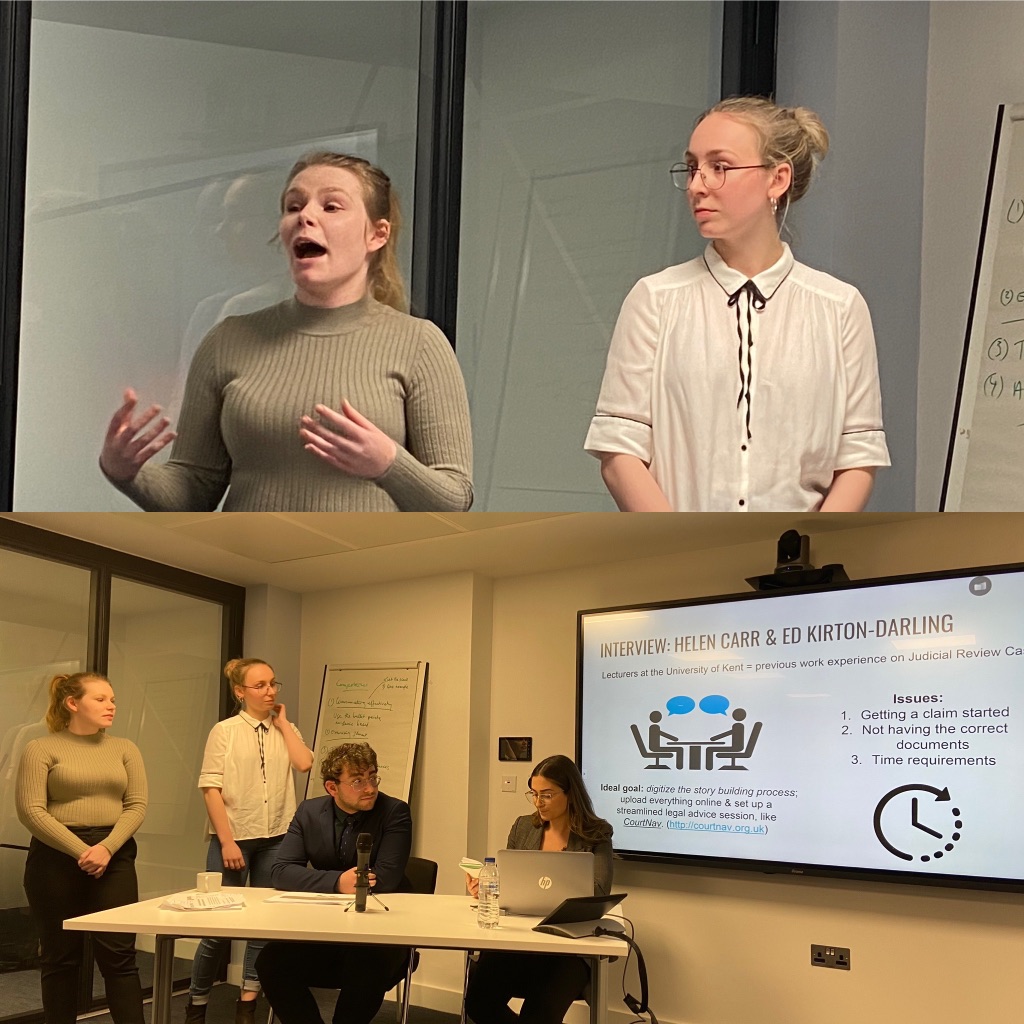
Finally, the second City team were allocated a challenge from the UK Centre for Animal Law (A-Law). Again, this challenge was a testing one – they needing to convey to the legal profession that animal interests should be taken seriously as a discipline. This team had lost a couple of members along the way and indeed had to change their whole tack only a matter of days before the final, which was tough for the remaining duo. This meant full solution development was not viable in the time . However, they carried out some very helpful user research and started to move towards solid development of their ideas.
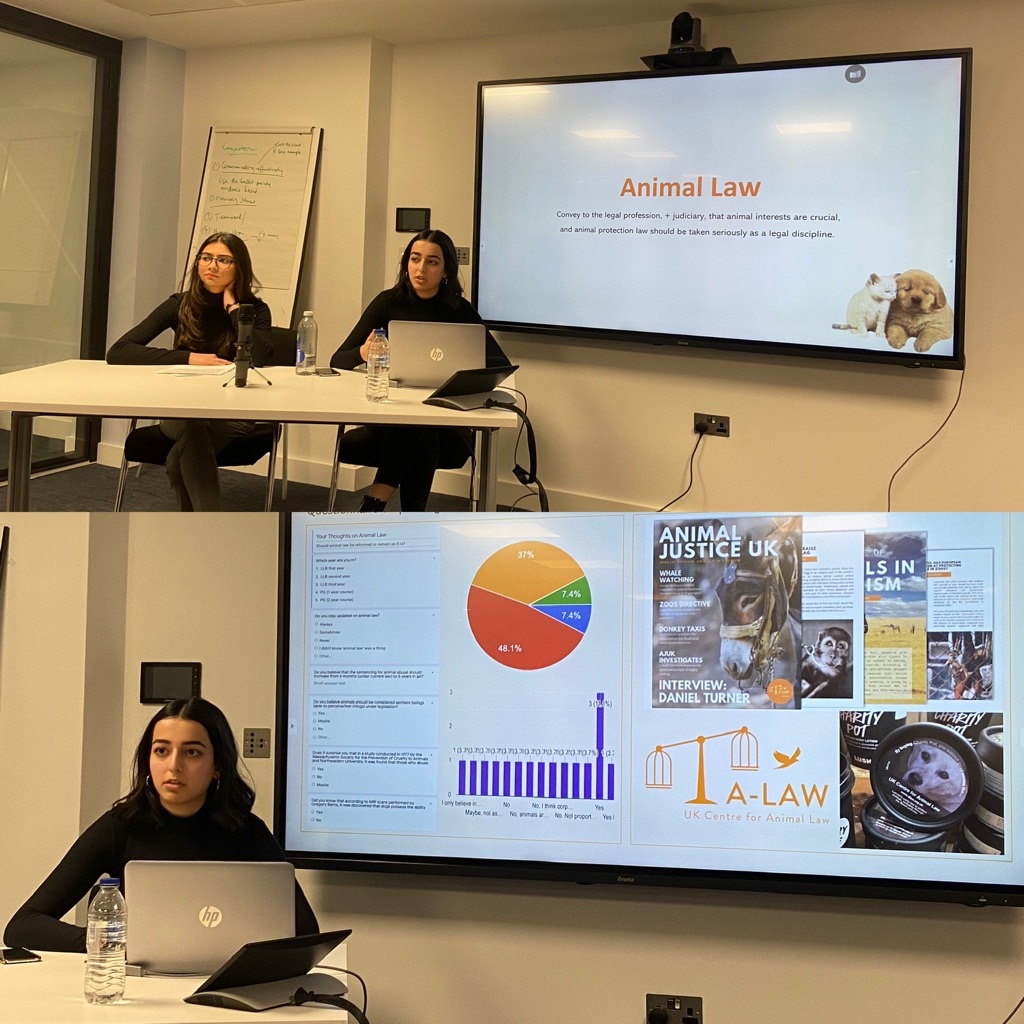
Whilst it is great experience for the students – who in this situation have learned so much over the course of four weeks – what we’re missing in the process is of course industry investment (funds and expertise). The organisations we developed ideas for (EASS, PLP, School Exclusions Project, Disability Rights UK, A-Law) are usually time and funding-poor, often powered by volunteers. It would be amazing to be able to complete the circle, and have law firms and legal tech businesses support the students and organisations in making these prototypes become reality.
Who won?
The University of Birmingham – Mary Connolly, Erin Conely and Luned Jewell – team got first prize (EASS challlenge), with joint runners-up the University of Exeter – Harry Roissetter and Ben Gardner – (School Exclusion Project challenge) and the City Law School team – Will Edwards, Bethany Knowles and Ann-Marie Debrah – (Disability Rights UK challenge).
Huge thanks…
Many thanks to the organisations who not only were trusting enough to let us loose with their challenges, but who also spared the time to talk to the teams. as we know, most of these organisations are volunteer-run and have huge pressures on their time, so thank you. Big thanks to our judges – Joanne, Catherine, Rae and Cristina for spending the afternoon listening to the team presentations and being so engaged in the process. A final thank you to the Bar Council, and particularly Rose Malleson, who is responsible for the work of the Education and Training Committee. Rose was passionate about running this sprint as part of Justice Week from the start, and was superb at all elements of the organisation of this event.
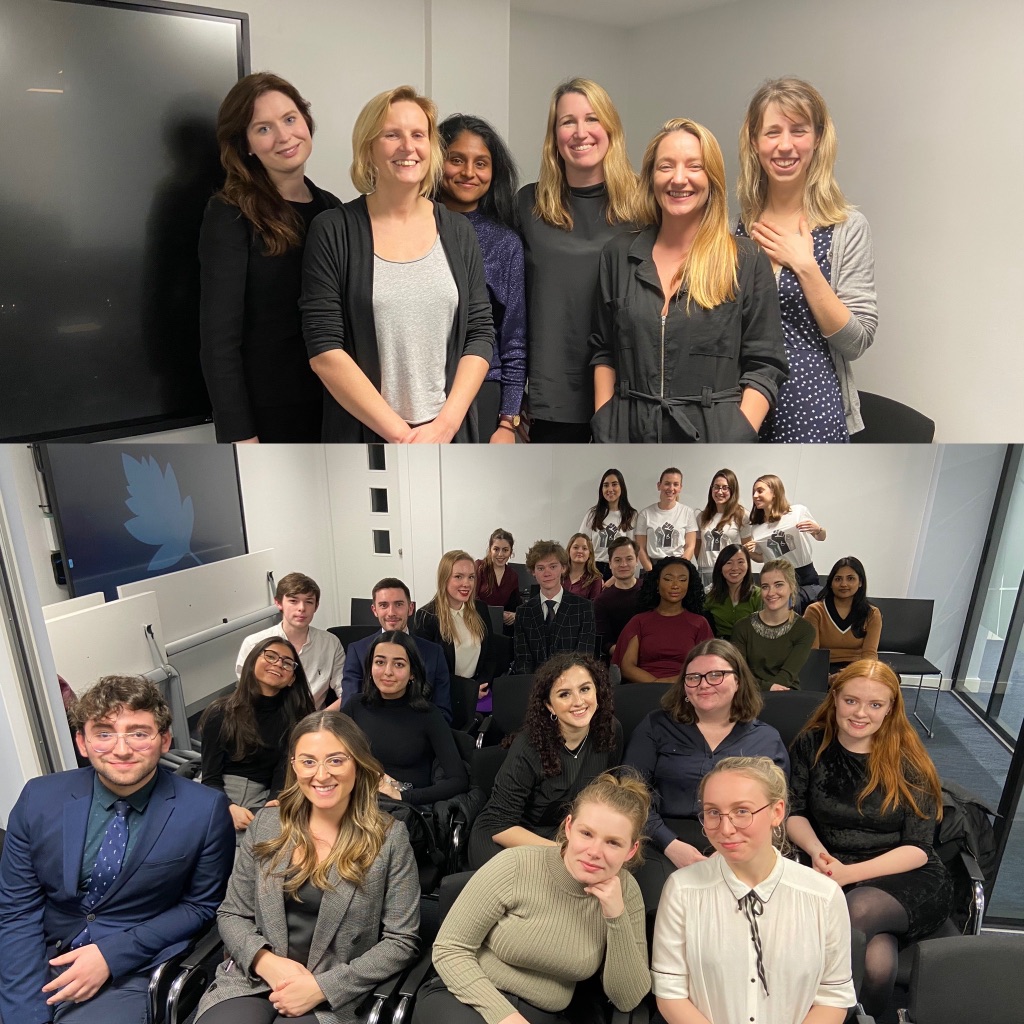
Final thanks to Joanne Kane for her review of the event for the Young Bar blog and of course to the student teams – we were all so impressed with your work for this event.

